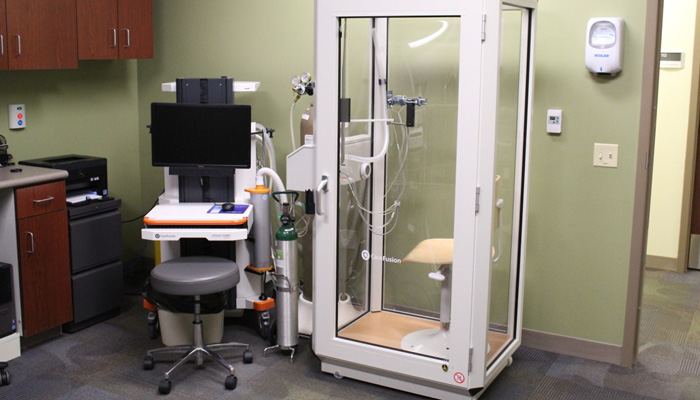Pulmonary Function Tests

Pulmonary Function Tests (PFTs) are a series of different breathing tests led by a trained pulmonary function technologist, usually done at a hospital or clinic. There are national standards and guidelines that help make sure that everyone does and interprets pulmonary function tests in the same way.
To learn about your lung health, your provider may want you to have several PFTs completed, including spirometry, lung volumes, diffusing capacity and airway resistance. Most of these breathing tests are done by blowing into a tube while sitting in a chair.
Before your PFT
- Wear loose clothing that won't restrict your ability to breathe deeply
- Avoid large meals prior to your test time that could make it uncomfortable for you to breathe deeply
- Don't use your inhalers on the day of the test, if possible
At your appointment
- The equipment is set up after being cleaned and disinfected, including a clean mouthpiece
- The technologist tells you what to do before each test. Listen carefully and follow the coaching. If you don't understand what to do, ask the technologist to explain it in a different way.
What we can learn from PFTs
A doctor will analyze the results of your PFTs and see how you're doing by comparing them to predicted values that would be normal for a person your age, height, sex and ethnicity. Height is important because taller people may have bigger lungs. There are many things that can change the results in PFTs. A medical diagnosis is not likely to be made from PFTs alone.